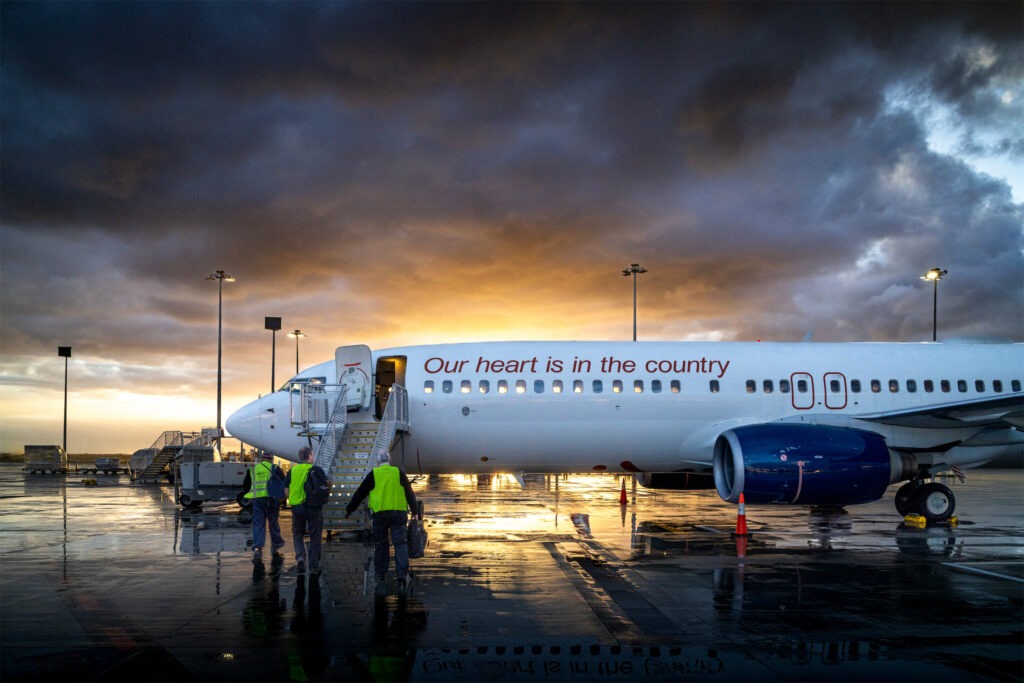This program meets the theory element of aircraft type rating training, as outlined in CASR MOS Part 66 Appendix III, for an aircraft maintenance engineer who already holds a B1.1 rating for the B737-600/700/800/900 (CFM56) with exclusions E1, E4 & E5 against the rating, seeking to remove the exclusions.

Learning Outcomes
At the successful completion of this course, the student will have gained sufficient knowledge of the Boeing 737 NG necessary to perform and certify maintenance tasks permitted to be carried out as certifying staff category B1.1.
It provides detailed description, operation, component location, removal/installation, bite and troubleshooting procedures to a maintenance manual level. The trainee will have an understanding of the specific human factor issues that may be associated with this particular aircraft type.
Assessment is by way of Written Multiple Choice Assessment.
Course Prerequisites
This course has the following prerequisites:
- Must be familiar with turbine powered transport aircraft and digital electronic equipment and must have the knowledge and/or experience required for maintaining turbine powered transport (e.g.Cert IV in Aero skills or equivalent)
- Hold a B1 Licence rating for the B737-600/700/800/900 (CFM56) with the Exclusions E1, E4 and E5;
Practical on Course is also available and can be packaged together: → 737 NG E145 POC
TUITION FEES
Course Duration
Get the FAQ
READ THE FAQCourse Information
See a breakdown of the course, get information on entry criteria, and explore the upcoming delivery dates.
Syllabus
The B737-600/700/800/900 (CFM56) B1.1 E1, E4 & E5 Exclusion Removal Theory course willcover the ATA’s specified in the syllabus below and taught to the ATA 104 Level specified covering the electrical and avionic aspects of the chapters. Due to different experience, learning styles the time will vary slightly between classes.
| ATA | Description | ATA 104
Level |
| 00 | Introduction | 1 |
| 21 | Air Conditioning | 3 |
| 22 | Auto Flight | 2 |
| 23 | Communications | 2 |
| 24 | Electrical Power | 3 |
| 26 | Fire Protection | 3 |
| 27 | Flight Controls | 3 |
| 28 | Fuel Systems | 3 |
| 29 | Hydraulic Power | 3 |
| 30 | Ice & Rain Protection | 3 |
| 31 (EIS) | Electronic Indicating System | 3 |
| 31 (R) | Recording Systems | 3 |
| 32 | Landing Gear | 3 |
| 33 | Lights | 3 |
| 34 | Navigation | 2 |
| 35 | Oxygen | 3 |
| 36 | Pneumatic | 3 |
| 38 | Water/Waste | 3 |
| ATA | Description | ATA 104
Level |
|
| 46 | Information Systems | 3 | |
| 47 | Nitrogen Generation System | 3 | |
| 49 | APU | 3 | |
| 52 | Doors | 3 | |
| 73A | FADEC | 3 | |
| 77 | Engine Indicating | 3 | |
| 78 | Exhaust | 3 | |
| 80 | Starting | 3 | |
|
Total |
|||
Course Programme
The theoretical instruction is intended to provide the students with sufficient knowledge of the B737-600/700/800/900 (CFM56)necessary to perform and certify maintenance tasks permitted to be carried out as certifying staff category B1.1. It provides detailed description, operation, component location, removal/installation, bite and troubleshooting procedures to a maintenancemanual level. The trainee will have an understanding of the specific human factor issues that may be associated with this particular aircraft type.
The course will follow the outline below for lesson order and refer to the Syllabus for duration.
Each lesson will follow the guide sequence below:
- General overview of the
- In-depth presentation of the sub systems of the relevant material IAW student booklets
- Safety
- Use photos as required for clarification of locations, set-up
- Questions from students prior to moving on to the next